Top 10+ Types of Tiles For Bathroom Flooring
You may get various flooring ideas when you want to install the best flooring in your living room or in other areas of your home. But for the bathroom flooring, you have limited options to choose from.
The bathroom surface needs more cleaning than other floors of the home. Tiles are most commonly used for bathroom flooring as they give the best resistance against the water and give a modern look to your bathroom.
Choosing the best tile for bathroom floor is not a simple task. There are different types of bathroom floorings available in the market. And it is much likely to become super difficult to pick out a suitable option among them that provides the best functionality for all of your desired purposes.
Therefore, we’ve come up with this highly informative and comprehensive article for you. We have precisely compiled the top 10+ types of tiles for bathroom flooring so you can easily choose the best tiles for bathroom.
10+ Types of Tiles for Bathroom Flooring
There are various types of tiles for bathroom flooring. Today we will discuss the top 10+ types of tiles for bathrooms, and which will be the best choice for you. Let’s look at types of bathroom tiles along with their pros and cons:
1. Vinyl Tiles
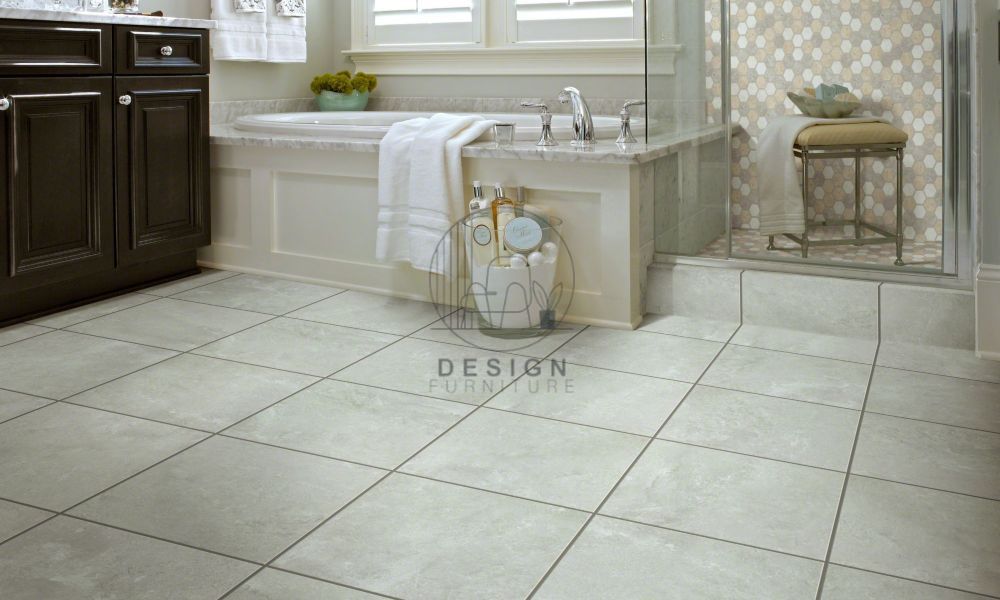
Vinyl flooring is the most commonly used choice of bathroom flooring. They can be installed easily and are reusable and sustainable. These tiles are also less prone to cracks and don’t break easily.
Many people buy these tiles because they are available at a low cost with the best quality. As for the pros and cons of these tiles, they include:
Pros
- Affordable
- Easy to install
- Water-Resistant
- Easy to maintain
- Comfortable to walk on
Cons
- Cannot be refinished.
- Non-Environmental friendly.
2. Ceramic Tiles
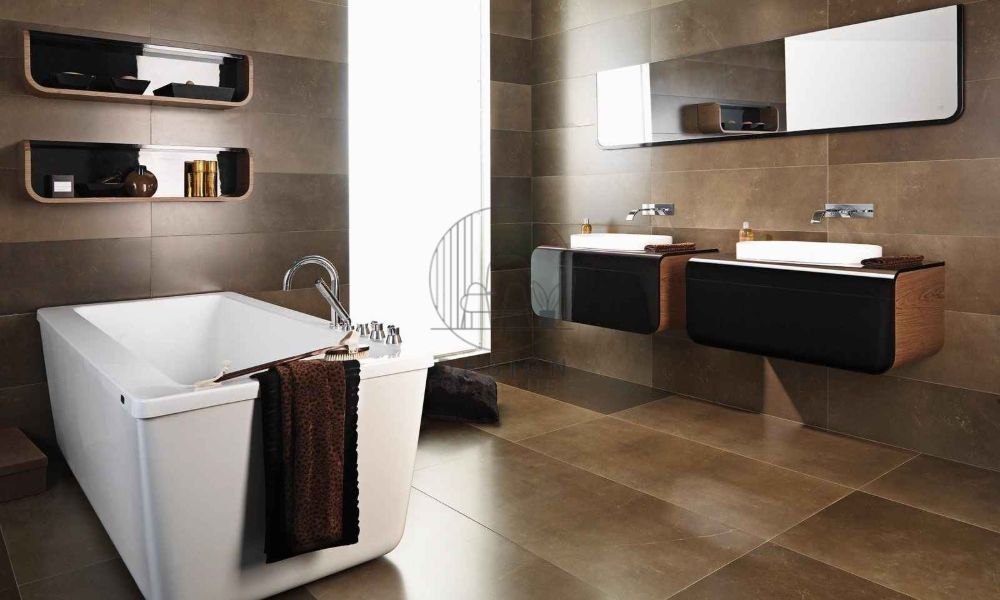
The second one is ceramic tiles that are water-resistant and versatile too. They feel cold yet comfortable and satisfying when installed in your bathroom. They can be available in any color and shape.
A Ceramic tile has a hard/solid surface that doesn’t attract dirt, dust, and other toxic and allergic substances. But these tiles also have some pros and cons that are listed below:
Pros
- Durable
- Water and stain-resistant
- Hypoallergenic and Safe to use
- Available in many designs.
Cons
- Become slippery
- Heavy in weight
- Difficult and time-taking installation
3. Concrete Tiles
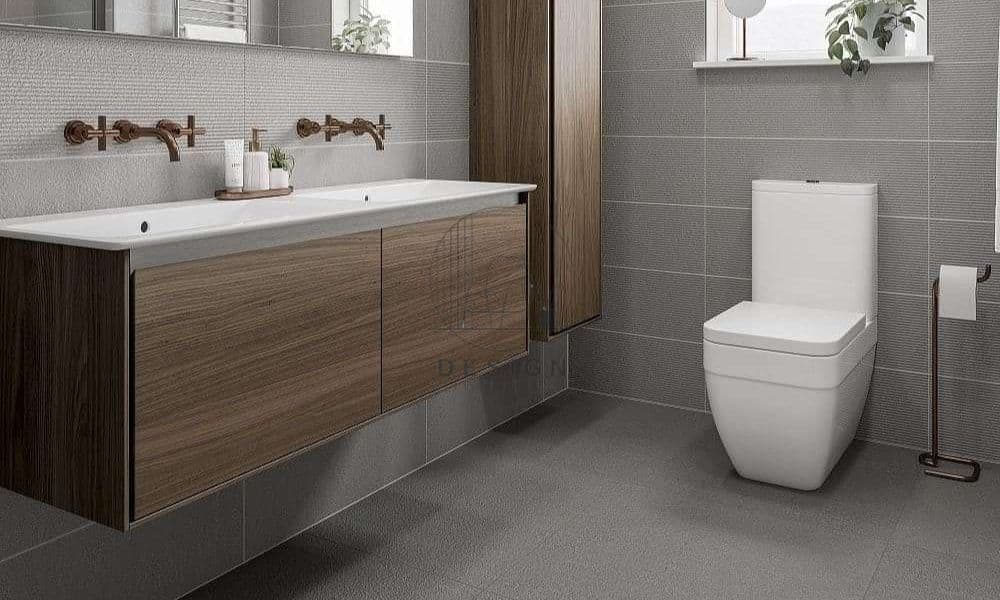
Concrete is a manufactured material that is a mixture of stone, sand, cement, and water. Concrete tile comes to the top ranking when we discuss the best bathroom tiles for water-resistant and high durability.
Water never damages the concrete tiles, thus making them the ideal choice for flooring. Only trained professionals can install these tiles. There are different advantages and disadvantages of concrete tiles:
Pros
- Durable
- Require low maintenance
- Water-resistant
- Fire resistant
- Eco-friendly
Cons
- Heavy in weight
- Can be broken.
4. Terracotta Tiles
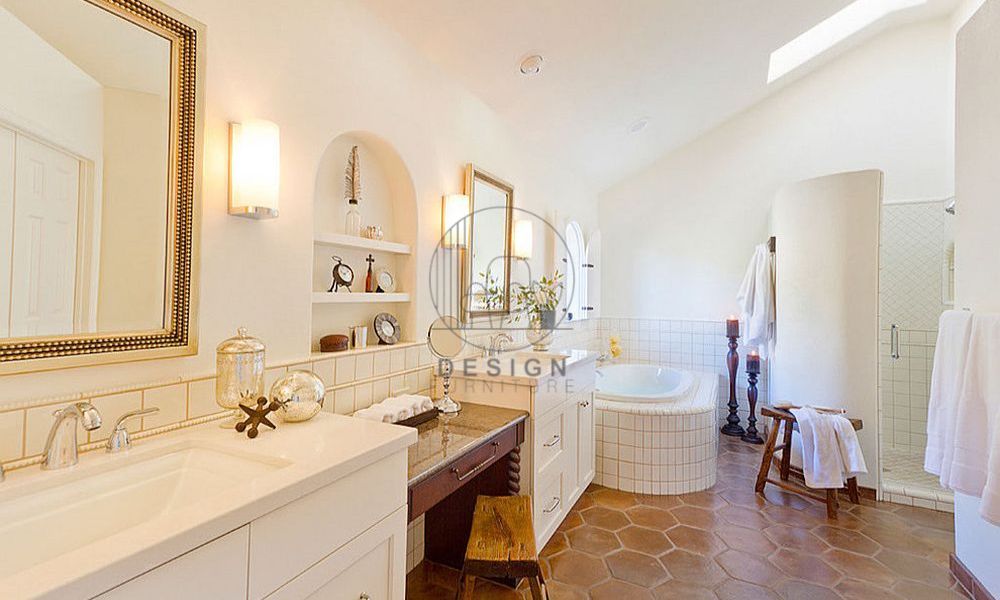
Terracotta tiles are old-fashioned and can create a cosy, warm, and delightful ambiance in your home. It comprises discrete red or earthy-hued clay, which has a strong surface. It is easy to maintain and is free from staining or other forms of damage. Some of the noteworthy positives and negatives of these tiles include:
Pros
- Available in different amazing designs
- Durable
- Can be reused
Cons
- Difficult to repair once they are broken/cracked.
- Installation is tricky and must be done by professionals
- They have a porous texture which means they can easily catch dirt.
5. Marble Tiles
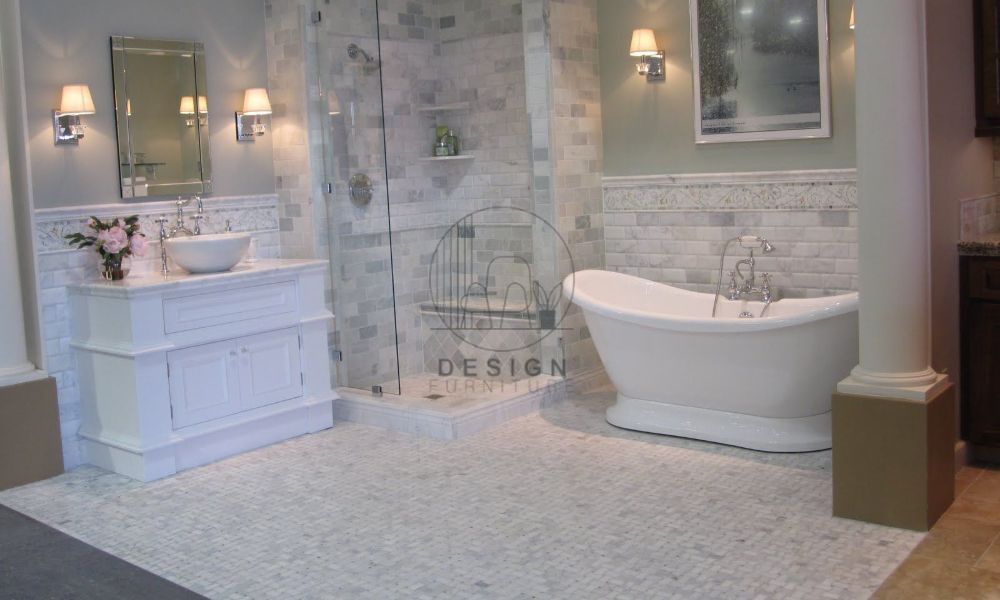
Marble tiles are the traditional and sophisticated flooring treatment that works equally well for bathrooms, too. They can be polished and come in a range of styles. They can instantly give a modern and amazing look to your bathroom and also make it easier to maintain for you.
Apply these floor and decor tiles for the bathroom to give a stylish and modern look. However, they require proper maintenance and must be cleaned regularly. This is one of the floor-to-ceiling bathroom tiles ideas you can apply in your homes. The pros and cons of marble tiles are:
Pros
- Adds beauty to your bathrooms
- Environmental-friendly
- Available in various colors and designs
- Gives glassy effect
- Easy to polish
Cons
- Porous in nature
- Slippery surface
- Expensive to buy
- Get stained easily
6. Stone Tiles
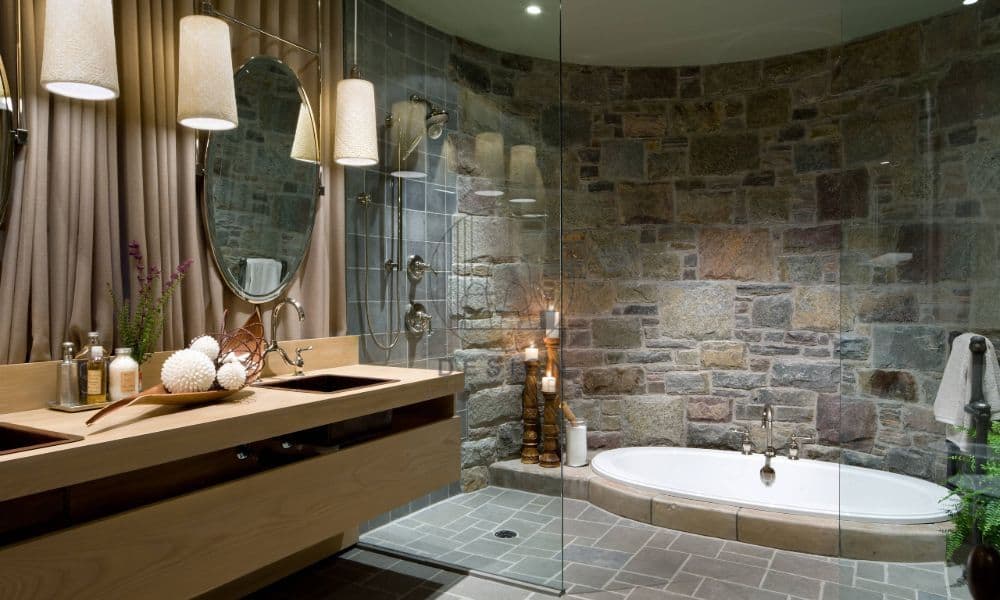
Stone tiles made from granite, marble, slate, and limestones are getting popular these days. They are available in different textures, colours and designs in the market. Stone tiles require extra maintenance and require regular cleaning.
They are also expensive to buy as compared to other types of tiles for bathroom flooring. The pros and cons of stone tiles are:
Pros
- Available in various designs and colors
- Preferred by many homeowners
- Has the high resale value
- Look aesthetically pleasing
Cons
- Porous in nature
- Expensive to buy
- Prone to damage and cracks.
- Becomes cold during winters.
7. Limestones Tiles
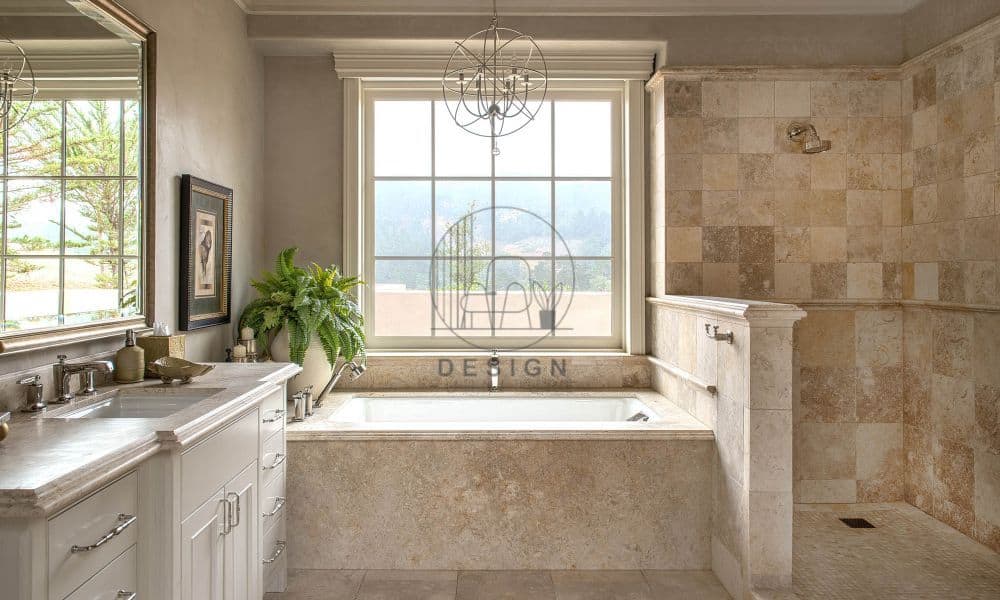
Limestone tiles are also one of the best flooring types used for the bathroom. It has a solid/strong surface that is ideal for use as a flooring material. They are easy to clean and come with ease of installation for the bathrooms. Apart from this, limestones have some pros and cons that are listed below:
Pros
- You can easily achieve any desired styling due to higher flexibility
- Durable
- Gives a natural appearance
- Available in natural tones and shades.
- Enhance the beauty of the interior.
Cons
- Has a porous rock surface and you have to seal it well.
- Must be cleaned with specific cleaners only
8. Linoleum Tiles
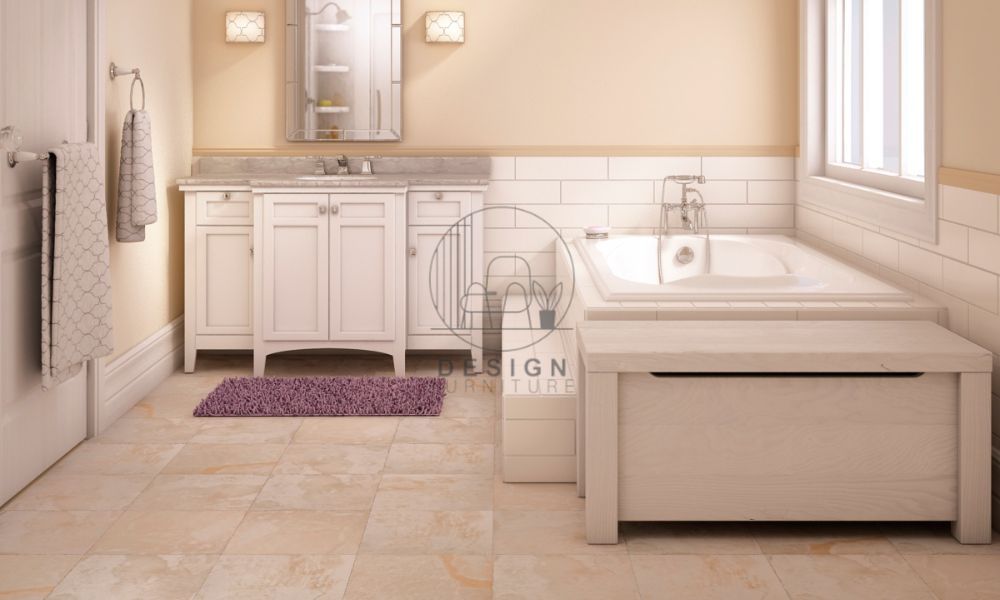
Linoleum tiles are well suited for bathroom flooring. They can resist dust and dirt, and any damaging impact on their color and texture. Also, these tiles can be installed easily.
They are versatile and can blend with any decorating style. No matter how old your house was built, linoleum tiles can blend with the original design of the home. Ahead is a brief description of their pros and cons:
Pros
- Durable
- Water-resistant
- Easy to install
- Available in a variety of colors and designs
- biodegradable.
Cons
- Has a porous rock surface and you have to seal it well.
- Can only be cleaned with a natural pH cleaner.
9. Slate Tiles
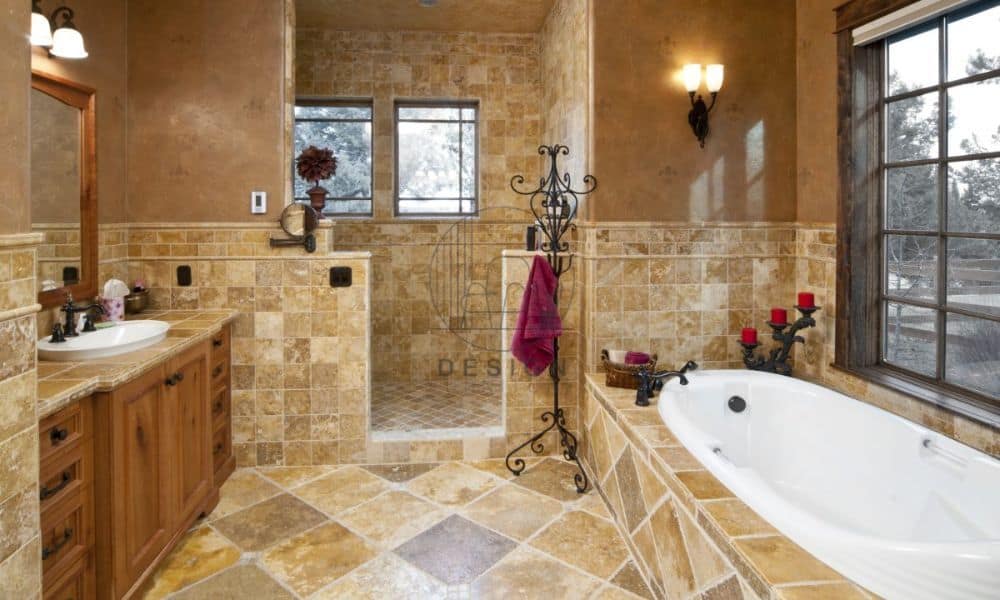
Slate is one of the most solid and standard natural stones used for the flooring of the bathrooms. It is resistant to cracks, chips, and scratches, similar to Terrazzo Flooring. Slate Tiles can also be sealed very easily in order to prevent staining.
If you take care of these tiles and maintain them properly, then they can last for a long period. Ahead are some pros and cons of slate tiles:
Pros
- Highly durable
- Available in various designs and colors
- Only a single tile can also be replaced if any damage takes place.
Cons
- Expensive to buy
- Feels cold underfoot
- Every tile has a unique texture and making a particular design with them is likely to become hard at times.
10. Porcelain Tiles
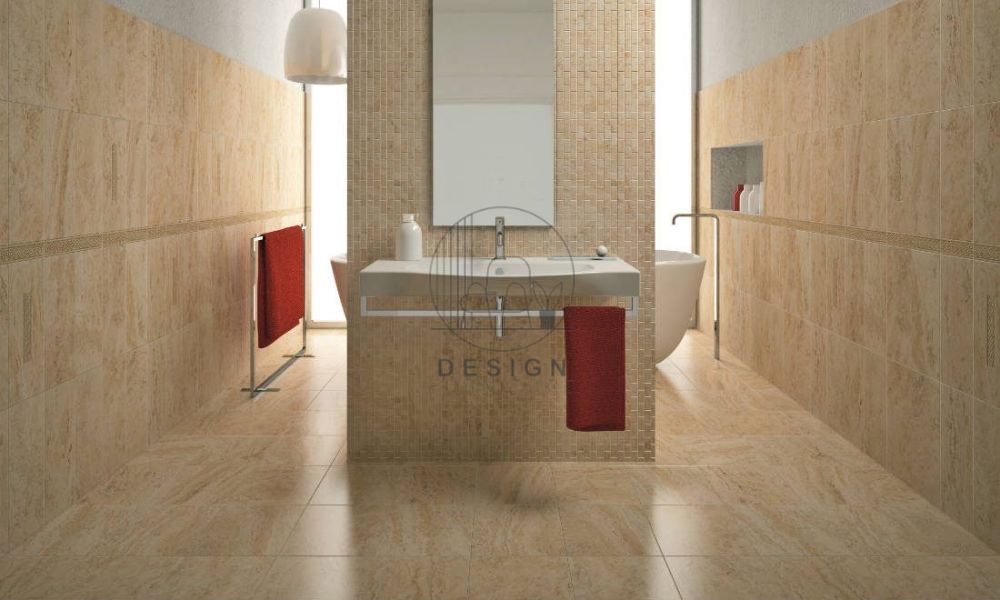
Porcelain tiles are also one of the best tiles to be used as suitable flooring treatment for bathrooms. As compared to other flooring options, it is extremely heavy-duty, durable, highly scratch-resistant, absorbs less water and is also stain-resistant.
Porcelain tiles come in a variety of colors and textures that can add beauty to the entire space. It has some pros and cons like:
Pros
- Available in different colors and textures
- Extremely durable
- Gives a modern and amazing look
- water-resistant
Cons
- A pricey floor treatment.
11. Cement Bodied Tile
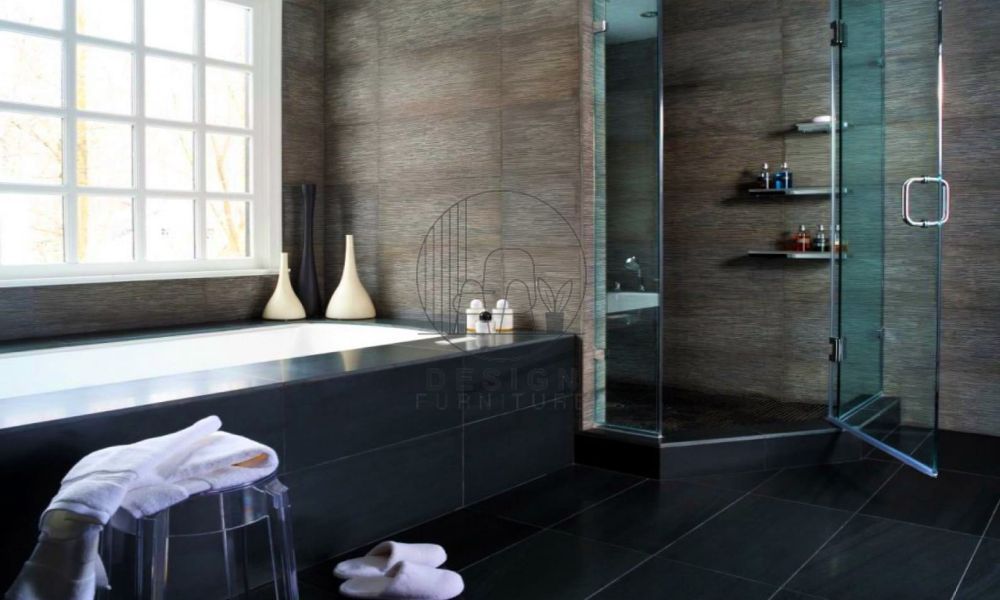
Cement-bodied tiles are also one of the best choices for bathroom flooring because it is an extremely water-resistant treatment. These tiles are highly durable, which means they can last for a long period without getting damaged.
It will last for years and years if installed and maintained well. But it also has some pros and cons too, such as:
Pros
- Gives an industrial look unlike many other types of flooring
- Durable
- Scratches or stains don’t become prominent on the surface
Cons
- It is porous and must be sealed well.
- Expensive to buy.
12. Metal Tiles
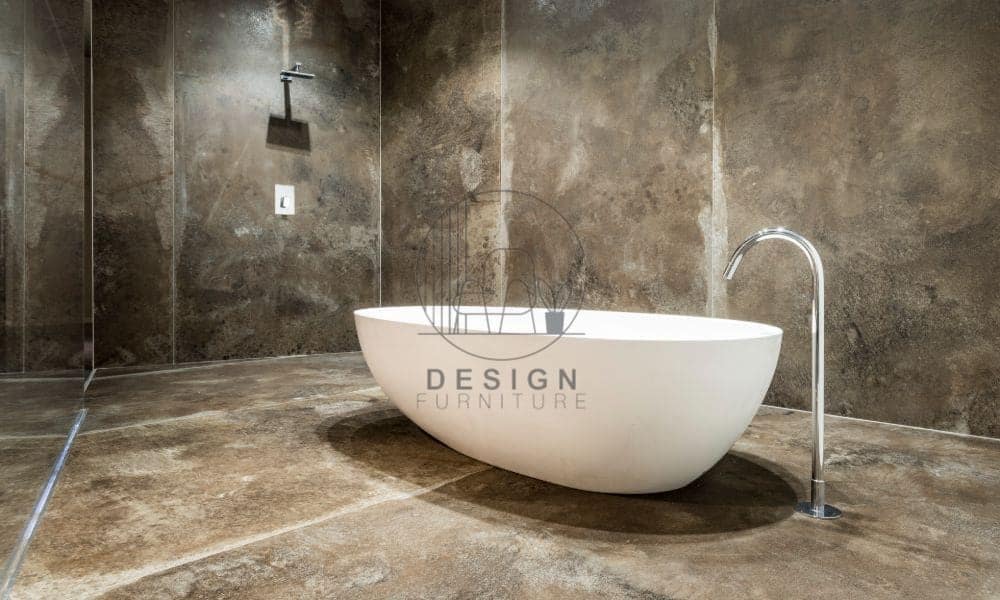
It is one of the best tile materials for bathroom floor. Metal tiles are mostly installed on the walls of the bathrooms. These metal tiles help in creating an amazing texture and give a modern look to the walls of your bathrooms. They are water-resistant and highly durable. Some of the pros and cons of metal tiles are:
Pros
- Lightweight
- Durable
- Eco-friendly
- Water-resistant
Cons
- Gets dents easily
- Can be costly
Conclusion
This is all about the top 10+ types of tiles for bathroom flooring. I hope this article would be helpful for you and you can choose the best tiles for flooring your bathroom surface. A smart and sustainable choice will turn out to be favourable for you in the long run and will ensure giving you the best value for your money. Also, it will save you from the troubles of excessive and expensive maintenance and similar expenses.
FAQs | Frequently Asked Questions
Lorem ipsum dolor sit amet, consectetur adipiscing elit. Morbi sagittis, sem quis lacinia faucibus, orci ipsum gravida tortor, vel interdum mi sapien ut justo. Nulla varius consequat magna, id molestie ipsum volutpat quis.
There are different bathroom floor and shower tiles ideas, but the most popular types of tiles used for a shower are glazed ceramic, natural stone, glass, and glazed porcelain. Apply black and white bathroom floor tiles because they give an amazing look to the bathroom.
Yes, porcelain is one of the top choices used for bathroom flooring. It is water-resistant, less porous, and solid, and provides great water and stain resistance.
The tiles installation procedure for bathroom flooring is done by following these steps:
- Ensure the level and clean the subfloor.
- Now lay the wonder board.
- Then line up the tile placement.
- Create a layout with bathroom floor tiles.
- Cut the pieces from the edge with the machine.
- Mix up the thin set of mortar.
- Now lay the tiles on the bathroom floor.
- Wait for 24 hours before grouting the bathroom floor tiles.
- Apply grout to the tiles.
- Now wash the surface of the tiles.
1-inch square to 12-inch square is considered being the best size of tiles used for small-sized bathroom flooring.




